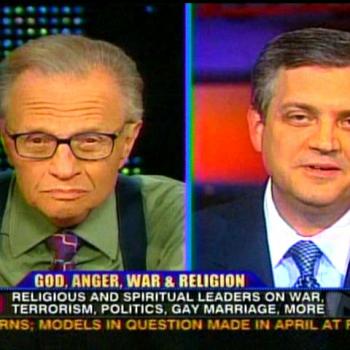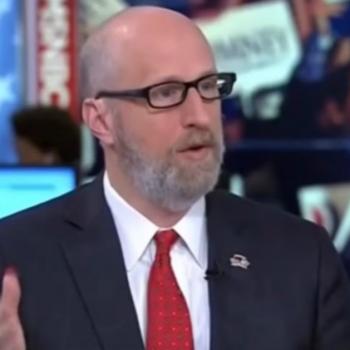The Democratic nominee in New York’s fourteenth congressional district, Alexandrio Ocasio-Cortez, would have her possible constituents and the editors at America magazine imagine that Christian teaching on forgiveness is the path through the tangled trail of criminal justice reform:
Discussions of reforming our criminal justice system demand us to ask philosophical and moral questions. What should be the ultimate goal of sentencing and incarceration? Is it punishment? Rehabilitation? Forgiveness? For Catholics, these questions tie directly to the heart of our faith.
Solutions are already beginning to take shape, which include unraveling the War on Drugs, reconsidering mandatory minimum sentencing and embracing a growing private prison abolition movement that urges us to reconsider the levels at which the United States pursues mass incarceration. No matter where these proposals take us, we should pursue such conversations with an openness to change and an aim to rehabilitate our brothers and sisters wherever possible and wherever necessary. By nature, a society that forgives and rehabilitates its people is a society that forgives and transforms itself. That takes a radical kind of love, a secret of which is given in the Lord’s Prayer: Forgive us our trespasses, as we forgive those who trespass against us.
That may make sense during Pope Francis’ tenure when the Vatican increasingly moves to opposing capital punishment, though when the pope was the prince of the Papal States, executions regularly took place as part of papal rule. Harder to harmonize is Ocasio-Cortez’s sentiment with Paul’s teaching in Romans 13 where he instructs that God gave rulers, not word and sacrament to forgive sins, but the sword to punish the wicked and to withhold from the good.
This is what the Coen Brothers got the distinction between the state and the church’s functions right in “O Brother, Where Art Thou.” As I explained once upon a time:
The state’s purpose is justice and, according to any number of New Testament writers, the magistrate is well equipped with physical penalties to accomplish it. The church’s purpose is mercy and is similarly furnished with such means as preaching and the sacraments to pursue its redemptive tasks. To confuse the two is to misconstrue the bad cop (the state) and the good cop (the church). The difference is really not that hard to grasp, except perhaps for those believers who would like the church to have the trappings of the state and for citizens who would like politics to fill some spiritual void. Even run of the mill ex-cons, like Ulysses Everett McGill, the scheming ring-leader of the escaped prisoners in the movie, “O Brother, Where Art Thou?,” could see that his colleagues conversion would have no effect on their legal predicament as escaped convicts. When Pete and Delmar both appealed to their baptism in a muddy river as the basis for a general absolution, Everett responded, “That’s not the issue . . . .. Even if it did put you square with the Lord, the State of Mississippi is more hardnosed.” That remarkable insight into the ways of the Lord and his delegated authorities goes a long way toward explaining why the phrase under God raises more questions than it seemingly answers. (A Secular Faith: Why Christianity Favors the Separation of Church and State, 122-23)
I understand that Ms. Ocasio-Cortez is young and may have only been ten years old when the Coens’ movie came out. I recommend she add it to her Amazon Prime watch list.












